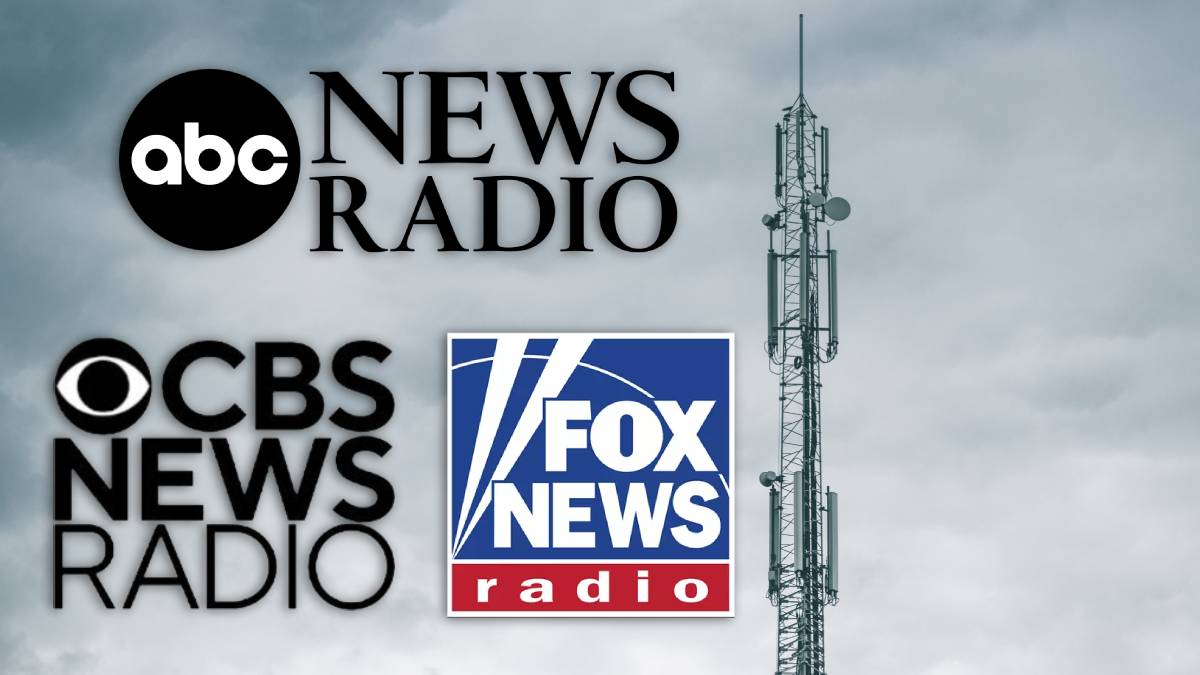It seems we’re either disparaging or defending the state of radio today — news/talk in particular — as the quality and dependability of the platform are forever called into question.
I will say what I always say before I begin a rant about the good and bad within what I am convinced is a decaying mechanism.
Budgets continue to dwindle, layoffs remain prevalent. Hell, CBS News Radio just lost two guys on the same day and one to the competition. Listeners eventually pick up on the things we at affiliate stations have known for some time, if you start to let it show that you cannot provide good service, pretty soon you’re going to sound like it, too.
Pointing a stiff finger at only the Columbia Broadcasting System would not be fair as everyone is suffering, even if they try to convince us they’re not. ABC, FOX, and the more minor league teams of news content providers are all challenged in one way or the other.
Among the things listeners are noticing is the steady increase in use — or misuse — of TV news content on the radio airwaves. This is far from new and there is really nothing wrong with it when executed properly. There is plenty of viable and available news audio that when taken from a television newscast, can complement and strengthen the day’s radio news coverage. TV reporters, producers, and photographers capture great moments that translate well with or without the need for images.
Of course, the practice works best when the visual elements are skillfully tooled and edited so as to be properly written around with engaging lead-ins and informative tags. It wasn’t long ago there was sufficient staffing to accomplish such things.
From a network posture, audio taken from a TV source was once cleanly trimmed at both ends from its origin with handcrafted verbatims depicting exactly what the speaker was saying. Writers and editors would remove any potential visual or datable references and start and end at an appropriate point so the listener and the affiliate staff could follow the story.
That’s not a brag, it’s how we were schooled, it’s what was required and it’s what the affiliate stations expected from us. Certainly, the listener did.
More recently, from an affiliate position, I have regularly encountered material fed by network services that seem to forget that somebody, anybody might actually be paying attention.
Local stations are network clients, they are customers, and as such they receive regular, often hourly, feeds of what is supposed to be the latest news content from other radio stations, TV feeds, and interviews conducted by the network sources. Soundbites, natural sound, and other elements are also supposed to be on the menu.
Those things still happen, but boy have things changed overall, at least from my perspective. Now I’m not saying that the case is the same for every network provider or every affiliate client but there are enough instances and examples to make it more than worthy of mention.
A network provider nowadays will regularly take the sound from a 90-second or 2-minute TV correspondent story and chop it into three, sometimes four sections. They will slap one generic lead onto each part and attach them to a list of news stories to send to the stations. “Look everyone, we’ve now sent you three or four versions of a story.”
That’s what the network is thinking, the local station knows better for the network has now created a considerable amount of extra work for a local news anchor or editor who has to turn this mangled content into something a listener might be able to grasp without having to pull the car over and do 10 minutes of background research in order to understand what they just heard.
Imagine taking a random page from a great American work like The Great Gatsby or The Godfather. Now, take that same page, divide it into three equal parts based on word size only, and hand each part to three different people. Now ask them what the book is about.
That’s a little oversimplified, sure but hopefully you get the idea. That’s a bit of what more than some local news stations get from their network.
Naturally, there have been never-ending discussions, comparisons, and complaints all around. Excuses, for sure. But those excuses fall short when you look at what local stations do on their own. And they also do more with less. Local radio takes from TV providers, they record, playback, and edit. And even if it’s just for convenience, they can transcribe when they need to.
A running newsroom joke often told is that just when the local station has had enough and is ready for yet another terse conversation with network people about quality issues, the network announces what industry awards they’ve just won. My guess is affiliates aren’t often voting in these contests. Or the person in charge of affiliate services has parted ways with the company.
At least one network takes a shortcut in providing the verbatims and transcriptions of the furnished story content, although I suspect all are guilty to some degree. I was once one of many who transcribed the audio to attach as a script to the stations. You didn’t guess, you typed it out like a court stenographer.
Look now at what those on the receiving end get and it’s like voice texting into your phone while standing on the corner of 44th and Broadway at rush hour. You know half of what’s spoken will be wrongly auto-corrected, names and places turned into words you couldn’t even conceptualize. Now imagine hitting send without checking or fixing it all. That’s often what it’s like to be sitting in a local newsroom when the network feed comes in.
Oh, and you don’t even have to guess how exact the transcriptions are as you read them. The network provides a little disclaimer for your benefit. “This verbatim is approximately 84% accurate”, or similar words and numbers to that effect.
How good is 84%?
Envision reading, watching, or listening to the news, and a waiver accompanied each segment saying, “This news story is approximately 84% accurate.” How confident would you feel about what you just learned?
The challenges are not all on the local stations. Network anchors deal with the same content the affiliate stations consume. A bit like prison guards eating the same food the inmates get, or something like that.
Yes, I am being glib and critical but remember when you hear something good it’s because talented people are working hard to make it happen. When you hear something substandard, it’s rarely due to incompetence or lack of skill, it’s because there are not enough of those talented people to meet the demand.
And whose fault is that?
It’s a feed-the-beast mentality, numbers over nourishment, and quantity over quality. That’s not the fault of who you hear on the air or those who back them up. It sits squarely on the shoulders of those who make bad decisions and don’t listen to what they’re providing. Or if they do, they don’t know what’s good and what’s bad.
Without passing disparity on any one particular brand, I feel safe in saying the quality and diligence in service have suffered because there are no longer enough qualified people to do the work, much less check the work before it goes out to the client.
News is certainly not the first to suffer such a problem, quality control issues are everywhere but that’s no excuse, especially for a medium that’s consistently pleading to other industries to help keep it alive.
One day, the idea of doing a better job might sink in and actually mean something to those in positions to do just that. My guess, however, is that it will be too late.
Bill Zito has devoted most of his work efforts to broadcast news since 1999. He made the career switch after serving a dozen years as a police officer on both coasts. Splitting the time between Radio and TV, he’s worked for ABC News and Fox News, News 12 New York , The Weather Channel and KIRO and KOMO in Seattle. He writes, edits and anchors for Audacy’s WTIC-AM in Hartford and lives in New England. You can find him on Twitter @BillZitoNEWS.







